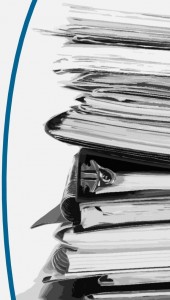International Tax – The Netherlands still attractive for multinationals?
 As from mid-2012, the Dutch parliament has expressed its interest in the use of the Netherlands in international tax planning structures by foreign (multinational) companies and is moving towards measures against so-called letterbox companies. Will the Netherlands remain an attractive location for multinationals?
As from mid-2012, the Dutch parliament has expressed its interest in the use of the Netherlands in international tax planning structures by foreign (multinational) companies and is moving towards measures against so-called letterbox companies. Will the Netherlands remain an attractive location for multinationals?
Benefits of the Dutch tax regime
In general, the Netherlands has a favourable corporate tax regime, due to:
• An extensive international tax treaty network;
• Participation exemption for dividend and capital gains received from qualifying subsidiaries;
• Absence of statutory withholding taxes on outgoing interest and royalty payments and a reduction of withholding tax on dividends under tax treaty application;
• Advance Tax Ruling policy, offering certainty on future tax positions.
Access to the Dutch tax regime
Compared with the laws in many other EU countries, Dutch corporate law provides a flexible and liberal corporate framework for the incorporation of subsidiaries by (non-resident) companies. There are no special restrictions or specific substance requirements on foreign owned companies planning to start a business in the Netherlands, which facilitates easy access to the Dutch tax regime.
 Recent developments
Recent developments
Dutch parliament is concerned about the development that the Netherlands would function as a kind of tax haven in international tax saving structures and therefore has announced to further investigate the possibility to take measures against so-called letterbox companies.
The Secretary of State, however, indicated that many countries have favourable tax regimes and is therefore not in favour of unilateral measures. Most importantly, many headquarters of internationally active companies are located in the Netherlands and provide a positive impact on the development of economic growth and employment.
It is expected that in June 2013, the Secretary of State will provide a further insight into his approach towards limiting the use of letterbox companies.
Moving towards economic substance
The OECD and European Union plead for taxation of companies on the basis of economic substance. If a company performs activities in a certain country, it should pay tax locally. This will have an impact on the current use of letterbox companies in the Netherlands (and other countries) and it is to be expected that in due time these letterbox companies will not remain in the Netherlands.
The Netherlands remain attractive
The Dutch tax regime is compliant with international standards set by the European Union and OECD. Even if taxation of companies who are internationally active is moving towards more economic substance, the Netherlands will remain an attractive location for multinationals, because:
• Economic substance for all
Specific requirements imposed by the European Union or OECD will have an impact on many countries and on the international tax treaty regime in general and therefore not only on the Netherlands;
• Open economy with focus on knowledge
The Netherlands provides multinationals with a highly-skilled work force, a stable economic and corporate legal climate and investment protection treaties. This will enable multinationals to expand their activities in the Netherlands towards a fully-fledged headquarter location;
• Superior logistics and technology infrastructure
The Netherlands offers an ideal location from which to penetrate markets in Europe, the Middle East, the Far East, Africa and beyond. One of the largest seaports in the world (The Port of Rotterdam) as well as Schiphol Airport are regarded as major business hubs in Europe.
In addition, the beneficial Dutch tax regime with participation exemption, a cooperative Dutch Tax Authority and no withholding taxes on interest / royalties alongside the extensive tax treaty network, will ensure that the Netherlands will still play its role in international tax planning.


The Dutch government has taken steps to tame its tax avoidance industry. Since 2009, companies have had to meet some minimal requirements for a material business presence in the Netherlands if they want to take advantage of Dutch tax treaties with other countries. Legislators hoped that would block letterbox companies from being used by multinationals as tax shelters, and indeed the number of letterbox companies has been stable for three years, though the total has not shrunk.
Dear Cecelia, Thank you for your response. In addition, the following extract of a letter to Dutch parliament by the Secretary of State of the Ministry of Finance (June 25th, 2012), gives a further insight into the view of the Dutch government regarding substance requirements.. No substance requirements The concept of ‘substance’ does not have any legal meaning and would not comply with our Dutch corporate law, due to the fact that the acknowledgement of a corporation is not dependant on substance requirements. The concepts of ‘substance’ or ‘substance requirements’ are not included in Dutch tax treaties or in Dutch tax law and therefore have no legal meaning. Practice In practice, these concepts, indirectly, do play a role when facts and circumstances are relevant for the application of tax treaties. First of all, to determine whether a taxpayer is a resident for tax treaty purposes. Secondly, when it needs to be determined who is the beneficial owner of dividend, interest or royalty payments in order to apply the treaty benefits and finally, they play a role in two specific anti-abuse regulations (limitation on benefits and main purpose test). Furthermore, they are of importance with respect to transfer pricing and the application of the arm’s length principle. Application of Dutch tax treaties If a taxpayer is a resident of one of the contracting states, the tax treaty will be applicable. On the basis of Article 4 of the OECD Model Convention, a taxpayer will be regarded as a resident of a contracting state for tax treaty purposes, if an entity is unlimited liable to tax in the Netherlands or the other contracting state. The Dutch Corporate Income Tax Law states that limited and unlimited liability companies incorporated under Dutch corporate law are considered to be established in the Netherlands. Therefore, they are unlimited liable to tax in the Netherlands and thus resident for tax treaty purposes. It may be possible that an entity is regarded as a dual resident if the other contracting state regards the entity as a resident as well. In that situation, the tax treaties in general conclude that the country of residence is where the place of effective management is located. This depends on the actual facts and circumstances. In this way, ‘substance’ is relevant to determine residence and the applicability of tax treaties. To obtain certainty in advance regarding the position of the entity for Dutch tax treaty purposes, a certificate of residence may be requested for with the Dutch Tax Authorities. This will include a statement by the Dutch Tax Authorities, that on the basis of the facts and circumstances presented to them the entity is regarded to be a resident for Dutch tax (treaty) purposes. This may be of importance to the contracting state that grants the reduction of withholding tax. As a rule, certificates of residence will be provided to corporations established under Dutch corporate law who are resident of the Netherlands under the conditions that the entity is subject to Dutch corporate income tax.